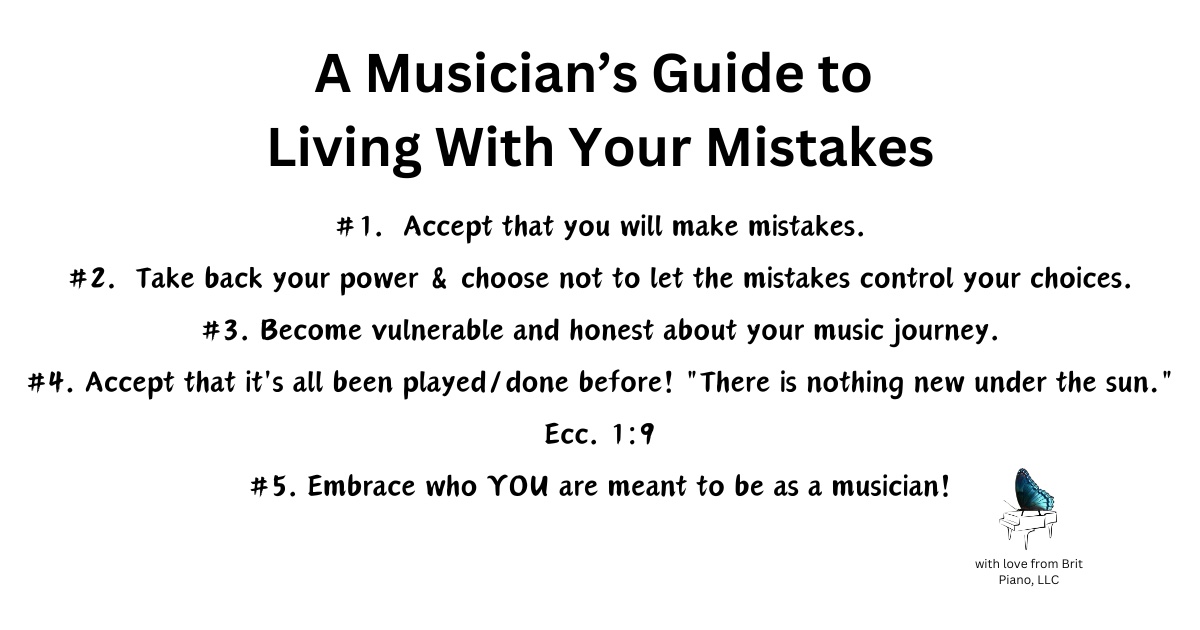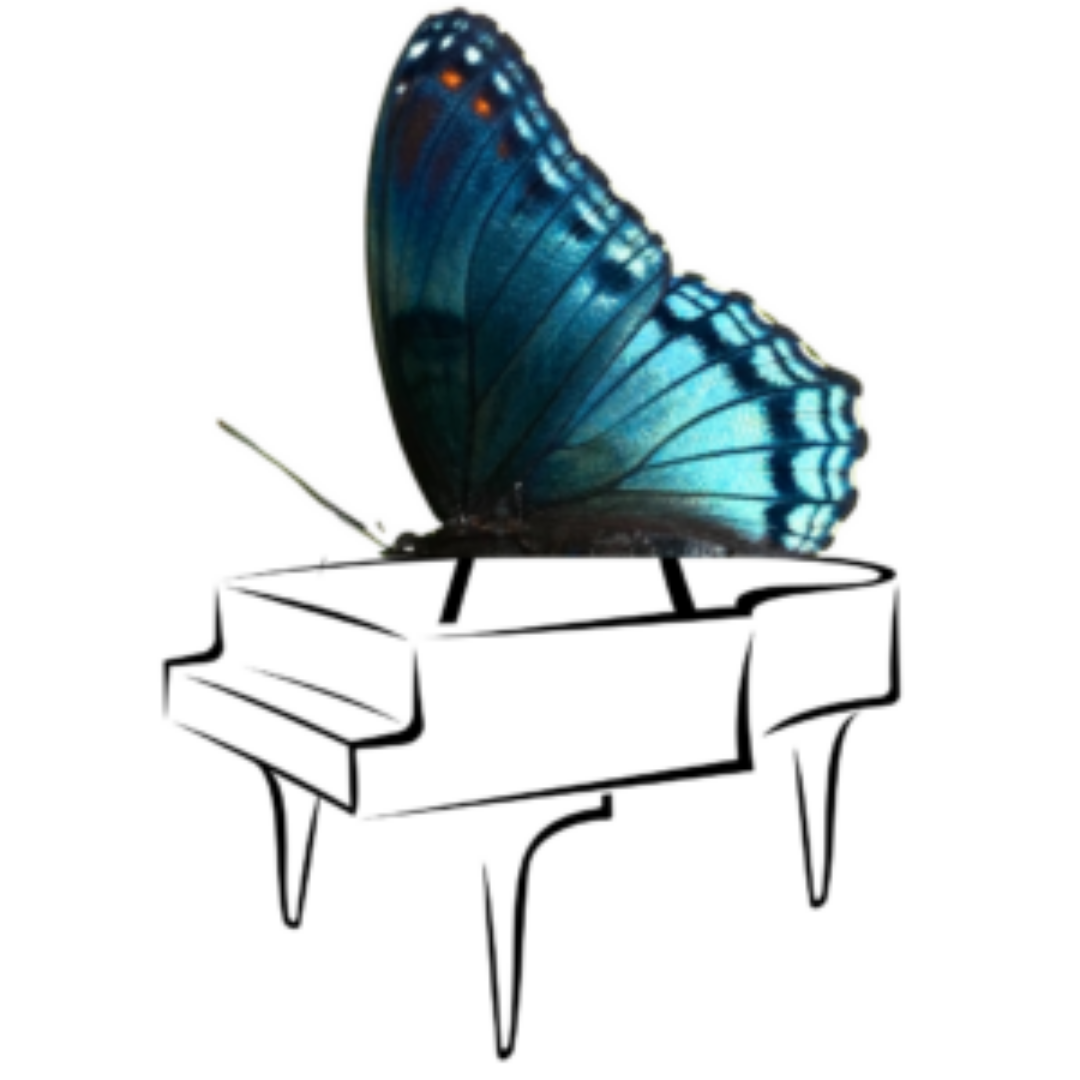A Guide to Living With Your Mistakes
#1. Accept that you will make mistakes.
One surprising aspect of teaching piano has been watching my students come to terms with their own mistakes. I’ve tried to do everything I could to be a positive teacher, to encourage & champion my students, and to make lessons fun & engaging. I’ve had a lot of amazing music teachers & one who was very discouraging years ago, so I try hard to land on the side of encouragement & giving my students tools to succeed.
That’s why it’s always a surprise to me that my students still deal with accepting and facing their own mistakes, whether they’re working on Old MacDonald Had a Farm or Beethoven sonatas. The fear of making mistakes rules us relentlessly, so much so that some people never even try or take a chance on music lessons for fear of failure. In essence this is allowing our mistakes, or fear of making mistakes, to control us.

#2. Take back your power & choose not to let the mistakes control your choices.
Take back your power & learn to control your choices based on the process, not perfection. Imagine yourself collecting each one of your mistakes and carrying it in a bag. Do you want to live that way? Can anyone live that way? Now imagine your mistakes as little birds, that fly away as soon as you’ve made them. It’s easy to think this way in terms of music: once you hit a note, right or wrong, it fades. Nothing you do can bring it back or change the sound you made. The impact of your mistake varies. But it’s over and done with. It’s possible you sounded so bad you don’t ever want to try again. But I want to encourage you to take yourself lightly. Let yourself sound awful, especially when you’re first starting out. Forgive yourself. And try again.

The way our brains work requires repetition and trying something over and over again to create a neural pathway. If we give up after the first mistake, we never give ourselves a chance to learn and grow. People have frequently told me they’ve never known someone who could play the piano at the level I play at, they are amazed to hear me play in person, but they don’t realize that my music today is built on a journey of years of trial and error, and leaving my mistakes in the past. They don’t realize that I have already made all the same mistakes and learned from it, it’s safe to say whatever mistakes you make I’ve made them first, and it still worked out okay in the end. People feel intimidated to play in front of me, but they don’t realize that I’ll never not have a little bit of fear of making mistakes when I play-for anyone, educated or not.
#3 Become vulnerable and honest about your music journey.
That’s because music requires vulnerability. There is a little bit of our soul present in everything we play, and when we make mistakes it feels like we can’t express ourselves properly. It’s hard to be vulnerable and accept the fact that we will make mistakes, but the more open and vulnerable we are emotionally the more profound and beautiful our music has the potential to become.
#4 Accept that it’s all been played/done before! “There is nothing new under the sun.” Ecc. 1:9
The desire to avoid mistakes is also rooted in the concept that we can become “the best” performer. This is a concept I let go of years ago, in an effort to focus on areas where I can improve my own musicianship, not try to compare or perfect myself according to what others play. Why did I make this switch? Because I realized we are living in a day and age where the classics have been overplayed, and you can practice and perfect a song for hours before googling and hearing a kid 1/3 of your age play it at a concert or on a tv show! Why torture yourself and be so tough on yourself if someone else out there can probably play it ‘better than you’ anyway?

#5 Embrace who YOU are meant to be as a musician!
Why play at all, in that case, if everything has already “been done” before & you’re not the best? Because I have learned that music is part of YOUR soul shining through. Your unique emotions, thoughts, mindset, character, and soul, can come through in the music. It’s how we can love one person’s rendition of a famous Chopin waltz and loathe another person’s version of the same song. It’s because there’s either something we connect with or there’s not, and that’s up to the soul that shines through the technical execution.
And the reality of music is, some people will like what you play and some will not. So if you’re going to play for the sake of playing perfectly and making everyone enjoy it, in essence it’s a lost cause. You’ve got to have a love for the music and the journey to sustain you past the likes, dislikes, or the sheer number of people who will never hear you play at your best.


